GRRM, GoT, and HotD: A Critical Overview
My love/hate relationship with George R.R. Martin's books and their adaptations.
Introduction
The following was written as a preface to my analysis of House of the Dragon, a show that is aging worse than Viserys Targaryen did. Once I got into it, I found that I couldn’t stop, so I sort of accidentally wrote a lengthy dissertation on HotD, which I will release in stages.
In this part, I discuss the background of HotD, particularly Game of Thrones and George R.R. Martin’s books, and my own feelings about both the show and the books, which have always been very mixed.
Game of Thrones
Like most people, I enjoyed much of Game of Thrones' first two seasons, when the budget was low but the dialogue was witty, and the world felt dangerous and authentic. Suffice to say, that didn’t last - an overwhelming majority of viewers were disgusted with the final season, but I hit that threshold quite a bit earlier (around Season 5). There was a definite sense that the showrunners felt that GoT was ‘too big to fail’ at that point, and they both a) stopped trying, and b) ran out of book material to adapt around the same time.
Perhaps I hit my threshold earlier because whereas most people were prepared to forgive or overlook the deteriorating scripts, I had always felt that were problems with the show. The sexual stuff is, well, it's a lot, and gives the show a rather skeevy, sticky feeling that can be offputting (more on this later). The violence is also pretty unrelenting, and gets increasingly grim (and nigh pornographic) as the show goes on - the showrunners revelled in their reputation for shocks a bit too much, and were always trying to one-up themselves with increasingly edgy violence, much of it sexual.
However, the biggest issue for me, which is apparent from the first season, is the show’s sketchy approach to morality. To put it simply, we often see characters do things which are at best dubious, yet we're manipulated with music, scripting and camera work into believing that they are in the right. The result is a kind of cognitive dissonance between what we see and how we are told to feel about it, which for me was always an unpleasant sensation.
Dany and ‘Moral Dissonance’
This is especially true of the Daenerys (known as Dany1) plotline, which I always found the weakest of the three main storylines (Wall, dragons, throne). Fundamentally, I don't particularly like the character, who spoke non-stop for several seasons (i.e. actual real-life years if you watched it as it aired) about her right to rule a country she had never seen, and the superiority of her bloodline. I also dislike that the author seemed to be on her side - her magical connection to her dragons was proof that she really is special and destined for greatness, which seems kind of against the spirit of much of what we see in the books, which are ostensibly anti-feudal and anti-war2.
Although Dany has kind moments, and is not even in the top ten worst people in Game of Thrones (until her final episodes), she is ultimately fixated on power, and more concerned with her rights than her responsibilities, which does not speak well of her future as a ruler or the road she's likely to take to get there. This isn't necessarily a bad or unrealistic basis for a character - given Dany's traumatic early life and circumstances, you would absolutely expect her to seek power to protect herself, and to be prepared do some sketchy things to get that power. However, that simply isn't how the show presents it. Instead, we're constantly encouraged to uncritically support her, largely because she’s beautiful and also framed as a victim.
The show's handling of Dany was manipulative from day 1: we are invited to sympathise with her even as she visibly glows upon hearing Khal Drogo's promise to pillage and rape (he doesn't use the word figuratively) throughout Westeros, the country Dany intends to rule. We are also invited to share her grief over Drogo's death, and to think that she was in the right when she burned Mirri Maz Dur alive, though the latter was a victim of gang rape and enslavement at the hands of Drogo's men, and more than justified in seeking revenge. Evidently, Ser Jorah's comment on the suffering of the smallfolk3 fell on deaf ears.
The common people pray for rain, healthy children, and a summer that never ends," Ser Jorah told her. "It is no matter to them if the high lords play their game of thrones, so long as they are left in peace." He gave a shrug. "They never are.
[NB: This quote appears pretty much verbatim in the show.]
Dany may show compassion towards individuals, but her intention was always to unleash dragons and Dothraki hordes on the smallfolk of Westeros, knowing full well what that meant (i.e. mass rape, murder and enslavement). Even in Qarth, she behaves like a tyrant, subjecting the city to collective punishment by looting after only two of its thirteen rulers plotted against her.
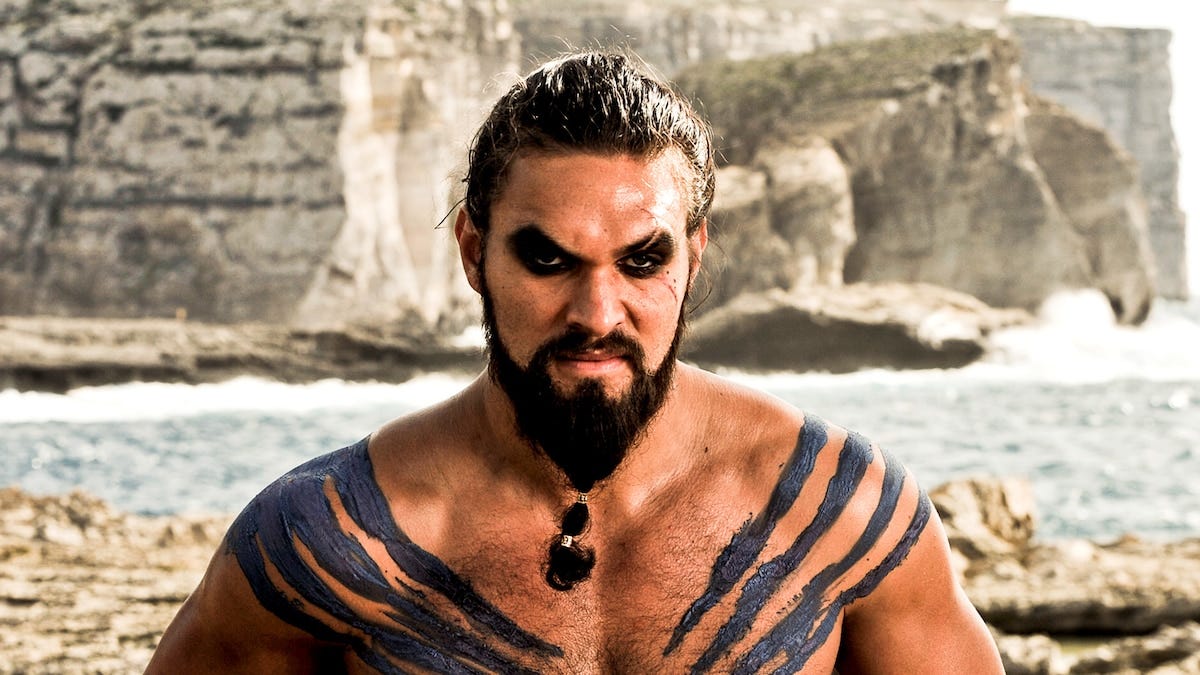
Is it bad writing for a protagonist to be morally dubious? No. Are Dany's actions framed as morally dubious? Not until much, much later, and by then 90% of the audience had been brainwashed by a) the uplifting music, and b) Emilia Clarke's breasts, resulting in a collective meltdown when the final episodes aired.
The Books and GRRM
As for my relationship with the books, I didn't get very far with them, though there are aspects that I like (see below). I read the first two a long time ago, and some of the third, but did not have the stamina to keep going. GRRM's approach to writing is very non-traditional insofar as there are literally dozens of different protagonists with their own PoV chapters. The thing is, there are good reasons this approach never became traditional - actively making life harder for yourself does not have legs as a tradition, and GRRM absolutely makes life impossible for himself as a storyteller.
I simply didn't have it in me to care about more than two or three of the PoV characters (I guess Tyrion, Arya, and Sansa?) at a time, and the chapters in between quickly became a slog. This seems to be the case for the author as well. I've long suspected that he gets bored of his own characters, and creates new ones for novelty. A look at his wikipedia page seems to support this - he described himself as having had a lifelong habit of writing ‘endless stories’ which continually introduce new characters and complications, and never get finished.
Looking at the current state of the books, I have a hard time convincing myself to pick them up again4. At this rate, GRRM won't live to finish them, and even if he lived forever, he still might not find the motivation to do it. Why invest in a story that is doomed to remain unfinished?
The author really has been hoisted by his own petard in this respect - the scope of the series is crazy, and to stick the landing on about twenty different character arcs and three major plots would be a feat beyond the ability of 99% of authors. GRRM's somewhat infamous 'tax policy' quote, in which he compares his philosophy to Tolkien's, and wonders what Aragorn's tax policy is, seems illustrative of the fundamental issue that he has with the limits that define a story. We don't know Aragorn's tax policy not because of author oversight, but because that was outwith the bounds of the story Tolkien set out to tell. GRRM, on the other hand, set out to tell a story with no limits, and consequently with no end in sight, where the setup is eternal and the payoffs may never happen.
Moreover, he himself is sketchy on such matters. I don't remember whether Cersei's tax policy differs from the Sheriff of Nottingham's - the author was more interested in her sex life.
Fat pink masts and Myrish swamps
On that note, this is another issue I have with GRRM's approach. To put it simply, he is beyond Freudian in his preoccupation with the grisly details of his characters' sex lives, and his language can be... colourful, to say the least5. He describes his philosophy thus:
'Life is very full of sex, or should be. As much as I admire Tolkien - and I do, he was a giant of fantasy and a giant of literature, and I think he wrote a great book that will be read for many years - you do have to wonder where all those Hobbits came from, since you can't imagine Hobbits having sex, can you? Well, sex is an important part of who we are. It drives us, it motivates us, it makes us do sometimes very noble things and it makes us do sometimes incredibly stupid things. Leave it out, and you've got an incomplete world.'
This assessment seems to be missing some fairly obvious context - a) LOTR was a sequel to The Hobbit, which Tolkien wrote for his children; b) he was a devout Catholic writing a story about good and evil; c) LOTR was never intended as a 'complete' picture of Middle Earth, but as a complete story of Frodo’s journey and Sauron’s defeat6. That being the case, I simply don't feel that any of us would have been greatly enriched by a description of Frodo Baggins' genitals or what he did with them. In his defense, GRRM was responding to an interviewer’s questions, and sadly any fantasy writer is going to be prompted to compare himself to Tolkien. Still, he couldn’t help but take the bait, and ended up saying a lot of foolish things.
His deeper point here, that sex is a core motive for any human being (or hobbit), at all stages of life7, can also be reductive, especially when we follow that logic to extremes. We see this in House of the Dragon, which uses GRRM's way of thinking as a springboard to dive deep into Freudian territory, a far from rigorous school of thought, which in HOTD is used more to shock and to stereotype rather than to inform in a mature way (more on this later).
GRRM's preoccupation with sex is particularly suspicious in the case of young girls - Dany is 13 in the first book, and only 17 in the most recent, but that doesn't stop the author from penning detailed descriptions of her body and encounters, and framing her relationship with the adult Drogo in a far too positive light. Any intended commentary on the cruelty of a young girl being traded as a child bride is undermined by the impression that the author, too, is leering at her.
The Better Side of GRRM
However, I must also recognise the positive aspects of GRRM's work. What has always stood out to me in his stories, and what defines many of his most memorable characters, is his approach to gender roles and the body, and the relationship between the two. In his books, GRRM depicts socities with very strict and clearly defined gender roles and expectations, which to me is fundamentally a lot more interesting and relevant to reality than the post-gender utopias that some authors attempt to depict8. In particular, he is interested in warrior aristocracies, which prize a combination of martial prowess, courage in battle, and physical soundness as the masculine ideal.
He then confronts the reader with men raised in these societies who do not and cannot meet these demands. We see this most obviously with Tyrion Lannister, who has dwarfism - he is an object of shame and ridicule for his family, referred to as 'half-man' (you kind of have to read into that), and copes by drinking, masking his self-consciousness with humour, and seeking the recognition and respect he is denied by working to further his family's cause (despite horrendous abuse from his father and sister). In pursuit of masculine virtue, he even takes part in battles personally, at huge risk, and suffers a disfiguring wound as a result, plunging him even further from the physical ideal and deeper into self-loathing. He can also be a thoroughly nasty piece of work, yet this never undermines the commentary on his disability and how it affects him psychologically.
Tyrion is pretty much the GRRM male ‘other’, yet there are many others. We have Varys, the eunuch spymaster, who exploits the fact that he is seen as weak and non-threatening, yet is also demonised for his differences. Suspicion is thrown at Varys as a poisoner, since poison is considered 'a woman's weapon', and he shows no reservation in using every tool at his disposal to further his goals. There is also Jaime, Tyrion's brother, a master swordsman who is launched into a full-blown identity crisis after the loss of his sword hand9, and Sandor Clegane, whose facial disfigurement makes him a monster in the eyes of society, resulting in a self-fulfilling prophecy.
More recently in HotD, we have seen Larys, whose name sounds like Varys for good reason, another spymaster who isn't a eunuch but has a clubfoot, and is introduced sitting with the women during a royal hunt, signalling straight away that he (like the eunuch Varys) is denied male status, unlike his dashing brother. Like Varys, he is seen almost as a third gender by those around him, and consequently an object of uncertainty and even disgust. The handling of Larys by the show's writers is a whole can of worms10, for which GRRM can't be blamed, but the basis is good, and that basis must be credited to GRRM.
HotD has also introduced Aegon II, who is not disabled until some catastrophic battle injuries, yet was nonetheless starved of masculine validation to a great extent (more on this later), and was driven to recklessly join the fateful battle after being shamed and belittled over this. This is largely an extrapolation from the show writers, but it is a rare case of them adapting some of the more complex themes and ideas from GRRM’s books and getting it (mostly) right. So in a roundabout way, the original author does deserve credit for Aegon as written in the show, who was certainly one of the highlights of the second season.
GRRM and Women
GRRM also gets a lot of credit for his approach to female characters, which is also generally good (leering at teenage girls notwithstanding). GRRM's women are many and varied, and their roles are meaningful, both in terms of characterisation and the extent to which they drive the plot. There is substantial overlap in GRRM's handling of disabled characters and his handling of women, in that he places female characters in social contexts where they are seen as fundamentally inferior to men, and examines the psychological and social consequences of this. This can also get rather Freudian (cough Cersei cough), but not necessarily in a bad way.
As Tyrion is the disabled character, his sister Cersei might be the best of GRRM’s female characters11. She is insecure, paranoid, and, like her brother, a fundamentally nasty piece of work. Nevertheless, she has infinitely more agency, complexity, and sheer vitality than anything we see in HotD, in large part because she is allowed to be wrong, and even allowed to be cruel and bigoted. GoT's conflict (and the conflict in the books) is never framed as 'feminist vs anti-feminist' in the simplistic way that HotD is, but is instead about the complicated relationships between individuals and society, and therefore it has much more artistic freedom to actually characterise women in meaningful ways. This includes showing female characters who aren’t supposed to be ‘liked’ or approved of by the audience.
Weird Worldbuilding
However, for all GRRM's good character work, he has his shortcomings when it comes to worldbuilding, though he is often praised for the latter. This is particularly obvious in light of his World of Ice and Fire book, a supplement to the main series, which offers an extremely dilated timeline of Tolkien dimensions that undermines the more grounded elements of Westeros. The politics of Westeros seem very static, insofar as there are families who are said to have been in power for literally thousands of years. This is more than a little bizarre, given that this simply doesn't happen in real life. It is suggested that the Maesters (who keep records) have distorted the time frames to make noble houses seem more venerable than they really are. But who adds a whole millennium, never mind several, to a family's history?
For reference, the Andal invasion, which is roughly equivalent to the Anglo-Saxon migrations, is said to have happened between six thousand (!!!) and two thousand years ago, which is a) quite a gap, and b) bonkers in that the Andals are supposed to have introduced knighthood and the equivalent to Christianity to Westeros. More egregiously still, the Stark family are alleged to have a history going back eight thousand years, which is frankly just stupid - in real world terms, this would make the Stark name (not just the culture they represent, but their literal paternal bloodline, name and noble status) pre-date the pyramids, the Bronze Age, and the construction of Stonehenge. So, the continent isn't only politically static, it's also incredibly socially and culturally static, in a way that real history is not. This stands out precisely because the actual depiction of medieval life and warfare is otherwise realistic, dragons notwithstanding12.
Another core feature of Westeros, winters that don't occur regularly and go on for years, also seems crazy when you think about it for more than two seconds, in terms of food stores, ecology, etc.13 And given that you could spend more than a hundred hours reading the books, and they are otherwise fairly grounded in terms of logistics, you are very likely to spend more than two seconds thinking about how winter makes no sense.
Religion or lack thereof
Another worldbuilding issue, which is more pervasive and far-reaching, is the widespread cynicism and de facto atheism that seems to be the rule rather than the exception in Westeros. This is no doubt coloured by GRRM's own apparent atheism (or agnosticism) and his hostility to authority (he grew up during the Vietnam War). In Westeros, we simply don't see much evidence for the legitimate, deathly, internalised fear for the state of one's immortal soul that real medieval people, from beggars to kings, very evidently lived with, especially when faced by the threat of imminent death as GRRM's characters constantly are.
When religion does rear its head, it tends to be externally enforced by the masses (led by the likes of the High Sparrow in ASOIAF, and the Shepherd in Fire and Blood) rather than internally felt by the nobility. In fairness, it is very hard for any modern writer to actually put themselves in the mind of a medieval Christian, and if we could, the resulting narrative would likely overshadow the politics which are supposed to be the focus of the story.
Essos and Robert E. Howard’s ghost
Essos, the neighbouring continent, is also difficult, insofar as virtually every culture described is abominable in some outlandish way - we have Lys, a city based on [checks notes] sex slavery; we have numerous horrible magical cults practicing human sacrifice; we have more eunuchs than you could shake a stick at, most notably the Unsullied, who have mastered the art of fighting in formation and not running away immediately (one wonders at the utility of castration in this regard); and sundry tribal societies practicing headbinding, riding zebras, being unusually hairy, and generally being exotic. Braavos, the somewhat Venetian city based on trade and banking, might be the only fairly normal city on the continent (shapeshifting assassins notwithstanding).
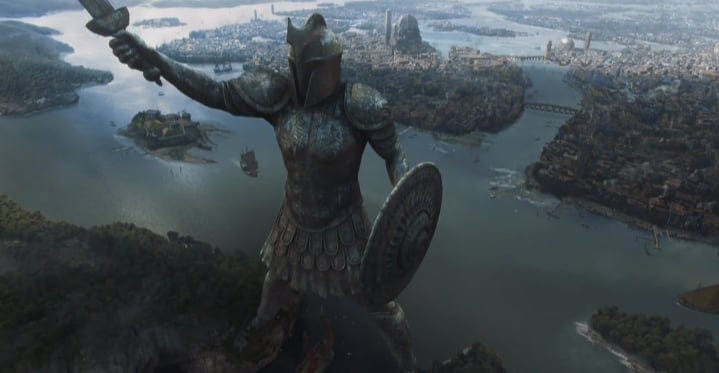
If anything, there's a faintly xenophobic quality to the strangeness of Essos and its people, particularly as they are always seen through Westerosi (European) eyes. This is, perhaps, a holdover from Robert E. Howard, who appears to have been an inspiration to GRRM, along with others of his era. Howard's stories do have their charm, but they can get eye-wateringly racist, and should be consumed responsibly. I don't necessarily think that any xenophobic subtext was intended by GRRM, particularly as Westeros is also something of a hellscape, but nevertheless, the sheer weirdness and outlandishness of Essos makes Dany's adventures feel like something of a sideshow compared with events in Westeros.
Remedies for GRRM
My list of suggested remedies for GRRM's issues with project management, worldbuilding and impulsively writing porn is as follows:
ADHD medication
Being forced to read history books
Being forced to watch documentaries about hibernatory animals, and think about where energy comes from (the sun)
One of those Roman slaves to stand behind him and remind him that he is mortal
Chemical castration
Alas, we're a bit late in the game for any of these remedies to be effective.
Nevertheless, GRRM's work represents a major step towards popularising the gritty, psychologically complex fantasy story, and has surely enriched the genre for the better, although we also see the less positive aspects (cringey sex scenes, edgy violence) being imitated by less capable writers. The books aren't perfect, and won't get finished, but the literary world really would be the poorer for the absence of characters like Tyrion and Cersei.
Now, if only House of the Dragon was better at being a gritty, psychologically complex fantasy story, we might be onto something....
Or ‘Khaleesi’ - this is her title, but many of her most passionate fans spent years believing it was her name. Still shocking.
Probably, some version of the show's controversial ending really is planned in the books, in which case all of Dany's previous acts will be shown in a different light. Sadly, that payoff may never arrive.
Which many have considered to be the author’s own voice and viewpoint.
I’m going to try, but we’ll see how far I get. Maybe the best approach to a non-completionist writer is not to be a completionist reader?
And by colourful, I mean gross.
It’s also a bit ironic for GRRM of all people to frame his work as more ‘complete’ than someone else’s.
I don’t think sex is a big motive for Frodo, a wealthy lifelong bachelor in his 50s. If there’s asexual representation in LOTR, it’s Frodo and Bilbo.
At time of publishing I have just finished Dragon Age: The Veilguard, whose ironing out of all problematic elements and painfully inept attempts at activism made the game a chore when it should have been a joy. It’s nice replaying Origins, where I can once again experience elves being racist to me, hear Sten and Morrigan bicker about gender roles, and generally spend time in a world that feels authentic and complicated.
Jaime is also dyslexic - I daren’t imagine his handwriting post-injury.
The initiated know what I’m talking about, and probably wish they didn’t.
Although Arya and Sansa are also excellent.
And dragons are largely absent from the books for good reason, they’d break the setting and prevent GRRM from writing about people, which is what he is actually good at writing about and wants to write about. More on this can of worms in future articles, suffice to say HotD would be better without the dragons.
Readers who know me irl know that I’m somewhat obsessed with bugs. I have to wonder, how are hibernatory insects, let alone mammals, supposed to survive multi-year winters which don’t occur predictably?





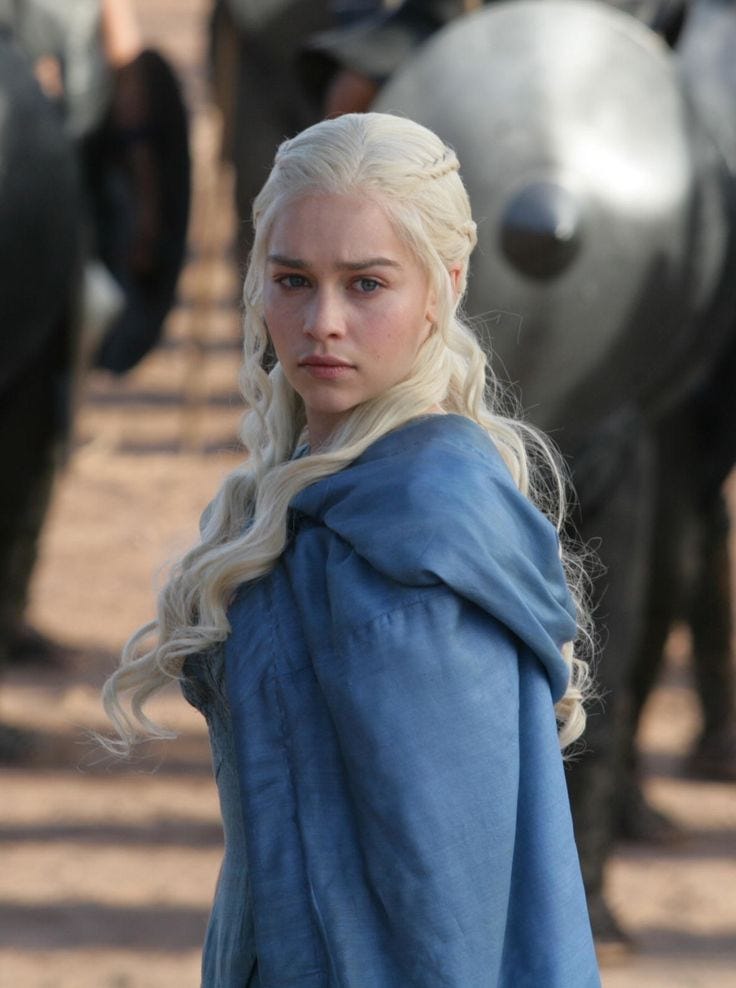
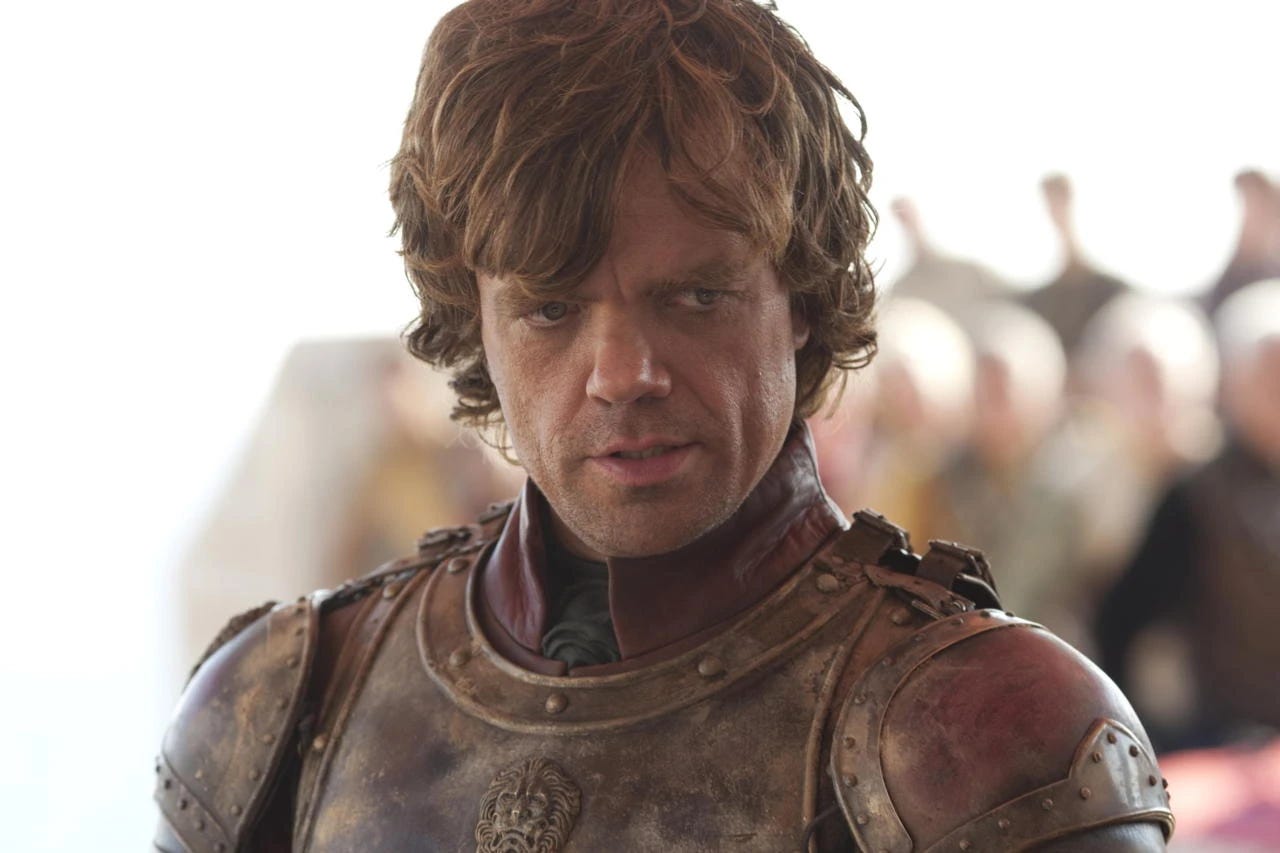

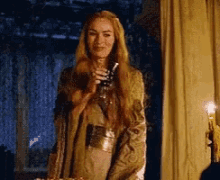
I'm reading this before checking out your HotD post, and this was really thorough, I agree with many of your points. I do think the latter books in the series are worth checking out despite the lack of a conclusion, as they include some really interesting character development for Tyrion that was largely absent from the show, and Cersei's PoV chapters are some of the best in the series imo. I would like to point out that the long seasons are supposed to be weird, Martin has said (tho I can't remember where he said it) that he intends to explain and solve the odd seasons by the end, implying that the long seasons aren't natural to the world but perhaps a consequence of something. Like many of the mysteries of the series that's likely not going to be answered tho